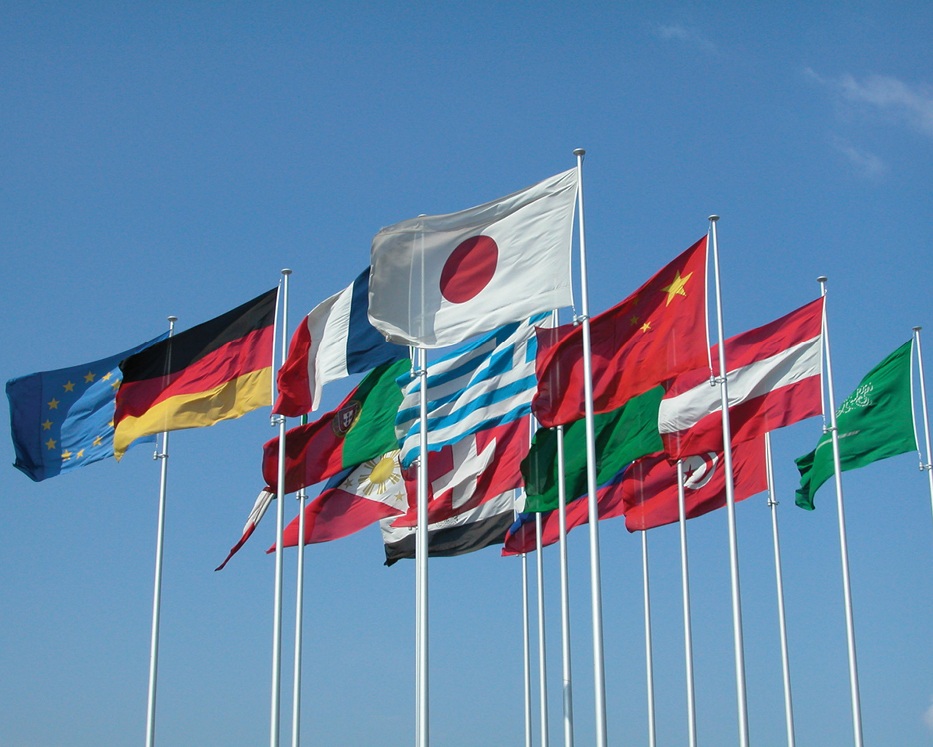Key Takeaways
- Companies say the 15% global minimum tax will be a nightmare to comply with, due to variations in country implementation.
- Despite the compliance fears, it may not increase tax liabilities by as much for U.S. companies.
- The dynamic could drive an agreement on a safe harbor.
- Tariffs poised to overhaul the global tax world as well as trade.
- New digital cloud tax regulations causing angst in Silicon Valley.
It’s been something of a mantra from the business community—Pillar Two, the Organization for Economic Cooperation and Development’s 15% global minimum tax, will be a compliance nightmare. But when all of the work is done, it will likely not create any significant new tax payments for most companies.
Cathy Schultz, vice president for tax and fiscal policy at the Business Roundtable, reiterated this point during an April 10 panel discussion at a Tax Foundation event, and delved into why this is.
“For companies, you have to pay attention to every country that you’re doing business in—which rules have they adopted, how are you going to comply with those, what are the rules for doing that?” Schultz said. “It's going to be very expensive for companies to comply. It's going to be very expensive for tax administrations to figure out how to take this information, what to do with it, how to use it, and what it actually is. And there's very little tax revenue being generated from this.”
This is partly because, while the overall Pillar Two scheme includes requirements for every participating country to follow, jurisdictions have some choices about which policies to adopt. The “Chinese menu,” as Schultz put it, means that companies will need to keep track of which combination each country is using, along with the particular variations in local laws.
They also have to “prove a negative”—that they owe nothing in additional Pillar Two taxes. Overall, it means transmitting “billions and billions of bytes of data” to tax authorities, according to Schultz.
Now to be fair, the OECD in 2024 estimated that Pillar Two would increase global corporate tax revenue by between $155 billion to $192 billion annually. And that estimate may not totally include indirect effects, such as the incentive for countries to raise tax rates and roll back benefits that run afoul of the Pillar Two rules.
But this is a central point of frustration for multinationals—and why there’s been persistent hope for some kind of permanent safe harbor that could make compliance easier. It’s exactly the kind of situation where safe harbors typically apply, when there’s uncertainty about enforcement but also potential areas of agreement.
That’s not to say that there’s reason to expect an announcement soon. Despite a joint statement from the OECD and Inclusive Framework from last week’s meeting suggesting some areas of consensus, there still are significant divides between the different sides. Many of those involved in the OECD process believe the final plan is the simplest way to implement its objectives, and a safe harbor isn’t possible without gaping loopholes.
The dynamic also demonstrates why half-measures wouldn’t be enough. Even if the OECD agreed on tweaks that would prevent increased taxation on U.S. multinationals most of the time, the risk and necessity of compliance still hangs over them. And that still could be enough to trigger a trade war.
A Tariff Pause, But No Reprieve
Despite the 90-day pause in President Trump's new reciprocal tariff regime announced last week, tariffs continue to draw attention and confusion. Some recent items on the topic:
U.S. Tariff Investigations Target Pharmaceuticals and Tech – Michael Smith, Tax Notes ($):
What Role for International Tax in a Trump Tariff World? – Mindy Herzfeld, Tax Notes ($):
Trump's Tariff Reprieves Buy Lawyers Time To Strategize – Dylan Moroses, Law360 Tax Authority ($):
Tariff Turmoil Opens Door to Insider Trading Suspicion, Lawsuits – Martina Barash and Gillian R. Brassil, Bloomberg Tax:
Classic securities fraud suits alleging that misrepresentations or omissions propped up a company’s stock price will almost surely follow Trump’s announcements, but will be hard to prove, Dean Conway of Carlton Fields PA said.
Other International Tax Items
Public Domain Superhero of the Week
Every week, a new character from the Golden Age of Comics, who’s fallen out of use.
This week’s entry: Fantomah

Debut Year:1940
Debut Publication: Jungle Comics #2
Origin Story: Unclear, other than being the "Daughter of the Pharaohs" and protector of the jungle.
Superpowers: She has virtually unlimited, omnipotent powers, including to transform herself and her victims.
Eide Bailly's International Tax Team and our affiliates at HLB, The Global Advisory and Accounting Network, stand ready to assist with your worldwide tax needs.
Make a habit of sustained success.



